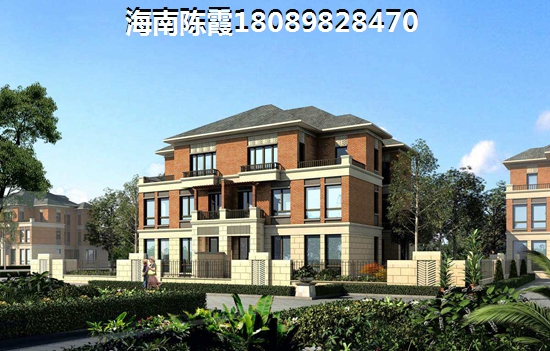買(mǎi)房TEL:18
0⒏98284
7O
1. 缺乏遠(yuǎn)見(jiàn):他們往往只看到眼前的利益,而忽視了長(zhǎng)遠(yuǎn)的未來(lái)。
2. 安于現(xiàn)狀:他們害怕改變,寧愿維持現(xiàn)狀也不愿嘗試新事物。
3. 缺乏創(chuàng)新:在面對(duì)問(wèn)題時(shí),他們傾向于使用傳統(tǒng)的、已有的方法,而不是尋求創(chuàng)新性的解決方案。
4. 消極怠工:他們對(duì)待工作沒(méi)有熱情,總是找借口拖延或逃避責(zé)任。
5. 目光短淺:他們只關(guān)注自己的利益,而不顧及團(tuán)隊(duì)或集體的利益。
6. 自私自利:他們過(guò)分關(guān)注個(gè)人得失,不顧及他人的感受和需要。
7. 缺乏自律:他們難以控制自己的欲望和沖動(dòng),容易受到外界的影響。
8. 害怕失敗:他們因?yàn)楹ε率《桓颐半U(xiǎn)嘗試新事物,從而限制了自己的發(fā)展空間。
9. 盲目跟風(fēng):他們?nèi)菀资艿剿说挠绊懀つ孔冯S潮流而不愿意獨(dú)立思考。
10. 缺乏自信:他們對(duì)自己的能力和價(jià)紙缺乏信心,常常表現(xiàn)出自卑和怯懦。

平庸者十大特點(diǎn)是什么呢英語(yǔ)
The top ten characteristics of mediocrity in English might include:
1. Lack of ambition: Mediocre individuals often lack the drive and determination to achieve higher goals.
2. Inconsistency: They struggle to maintain consistent performance or behavior.
3. Avoiding responsibility: Mediocritics tend to shirk their responsibilities and avoid taking ownership of their actions.
4. Lack of creativity: They often lack the ability to think outside the box and bring new ideas to the table.
5. Overconfidence: While some may appear confident, they often lack genuine talent and knowledge, leading to complacency.
6. Resistance to feedback: They have a difficult time accepting constructive criticism and often react negatively to feedback.
7. Self-centered: Mediators tend to prioritize their own interests over those of others.
8. Poor time management: They struggle to manage their time effectively, leading to procrastination and missed deadlines.
9. Inability to learn: They have a limited capacity for learning and often resist new experiences that could enhance their skills.
10. Negative attitude: They often maintain a negative outlook and struggle to see the good in situations.
It"s important to note that everyone has areas where they can improve, and being mediocre is not an absolute state. However, understanding these characteristics can help individuals recognize areas for growth and strive to improve themselves.

平庸者十大特點(diǎn)是什么呢
“平庸者”通常指的是那些在能力、成就或表現(xiàn)上缺乏顯著特色或突出貢獻(xiàn)的人。他們可能滿足于維持現(xiàn)狀,不追求卓越或創(chuàng)新。以下是平庸者可能具備的一些特點(diǎn):
1. 滿足于現(xiàn)狀:平庸者往往對(duì)當(dāng)前的環(huán)境和條件感到滿意,不尋求改變或突破。
2. 缺乏自我驅(qū)動(dòng)力:他們可能不愿意主動(dòng)承擔(dān)責(zé)任或挑戰(zhàn)自我,而是傾向于等待他人的指示或幫助。
3. 能力平庸:在專(zhuān)業(yè)技能或知識(shí)方面,平庸者可能表現(xiàn)得中規(guī)中矩,沒(méi)有突出的表現(xiàn)或成就。
4. 回避風(fēng)險(xiǎn):面對(duì)挑戰(zhàn)和風(fēng)險(xiǎn)時(shí),平庸者往往選擇回避,而不是勇敢地迎接并克服困難。
5. 缺乏遠(yuǎn)見(jiàn):他們可能只關(guān)注眼前的利益,而忽視了長(zhǎng)遠(yuǎn)的發(fā)展和規(guī)劃。
6. 模仿他人:平庸者有時(shí)會(huì)模仿他人的成功模式,而不是發(fā)揮自己的創(chuàng)造力和獨(dú)特性。
7. 不愿意學(xué)習(xí):他們可能對(duì)新知識(shí)和技能持抵觸態(tài)度,不愿意投入時(shí)間和精力去學(xué)習(xí)和提升自己。
8. 過(guò)分依賴(lài)他人:平庸者往往過(guò)分依賴(lài)他人的支持和認(rèn)可,缺乏獨(dú)立解決問(wèn)題的能力。
9. 消極態(tài)度:他們可能總是以消極的心態(tài)看待自己和周?chē)氖澜纾狈Ψe極向上的態(tài)度。
10. 缺乏專(zhuān)注力:在面對(duì)多個(gè)任務(wù)或目標(biāo)時(shí),平庸者可能難以集中精力,導(dǎo)致無(wú)法取得顯著的成果。
需要注意的是,這些特點(diǎn)并非絕對(duì),每個(gè)人都有自己獨(dú)特的個(gè)性和行為方式。此外,平庸并不代表一無(wú)是處,而是指在某些方面缺乏亮點(diǎn)和突出表現(xiàn)。
買(mǎi)房TEL:808284
7


